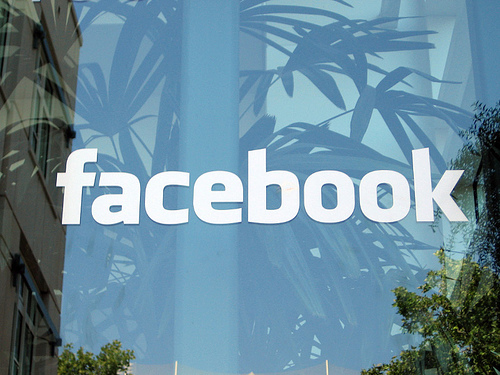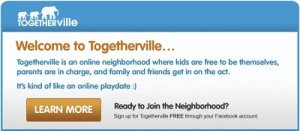With Facebook’s new Places feature, users can announce where they are.It helps mobile phone users broadcast their whereabouts and track their friends: They can see who else ‘checked into’ a museum, shop, park or theater, what they did there and what they thought of it……
Facebook Places, a feature the company announced Wednesday that will let Facebook friends know exactly where you are and let the friends know where they are, is the most utilitarian upgrade the world’s largest social network has made in a long time.How does it work? Facebook Places runs on the company’s iPhone app. If you’ve got a smartphone with location support and a browser that can handle HTML5 Web content, phones such as a Blackbery Torch or a Droid, try the Web site version of the service at touch.facebook.com.
Facebook Inc., leaping into the fast-growing world of location-based services, is rolling out a feature for mobile phone users to broadcast their whereabouts and track where their friends are.With the Places feature, users can also see who else has “checked in” at a museum, shop, park or movie theater, what they did there and what they thought of it.
The trend, which has caught on with the rising popularity of Internet-connected smart phones, may take off as the world’s most popular social networking site launches out the service to the more than 150 million users who access Facebook on mobile devices.Facebook sought to head off privacy concerns by giving users control over what and how much information they share on the Places service. Users can remove themselves if someone tags them or disable the feature altogether.
Online services that pinpoint a user’s location tread on sensitive territory, with one watchdog questioning how Facebook plans to use the location data it collects. But analysts say Facebook seems to have learned from the controversy that erupted this year when it nudged users to share more information publicly.
First, you will be able to notify your Facebook friends where you are at the moment. Apple has built impressive location detection into its newer iPhones. They have GPS, plus they sniff the air for local Wi-Fi network names and compare them to a map of known network locations. If you are at the movies, the iPhone will quickly figure out which cineplex you are at, although it won’t identify that you are in Theater 5 watching “The Expendables”.
Facebook will query your iPhone for its location, and prompt you with a list of nearby places that it knows about say, the Metreon theater on Fourth Street in San Francisco and the Starbucks across the street. Tap the screen to set your location, and all your Facebook friends will be able to see that you are at the Metreon, and when you checked in there.
Second, Facebook Places lets you see where your friends are. When you check in at the Metreon, Facebook’s iPhone app will pop up a list of who else is nearby, perhaps at Starbucks. The end goal is obvious: You can contact and meet up with friends who are near you. For example, I live in Los Angeles near Venice Beach. I wish I would have known that a Facebook friend I haven’t seen in person in years was half a mile away in Santa Monica last week. Facebook Places would have enabled us to find each other.
The third feature lets you leave comments about a specific place, so that friends who check in there in the future can see them. I could leave a comment that the Candle Café in Venice has yummy French toast. Ask for extra maple syrup. I don’t think Facebook is trying to steal Yelp’s restaurant review business, at least not yet. It’s more about leaving notes for your friends.
The concept of checking into a location and seeing who else is there was popularized by a start-up named Foursquare. People who use Foursquare often become addicted to constantly checking in wherever they go. The gym. The supermarket. The office. I used to make fun of them, but for the army of people who don’t report to the same workplace at the same time every day, it’s nice to be able to see where they are without texting them to ask.
Its Silicon Valley rival Google Inc. has already staked a claim with its own location service and is in the process of building a social networking service to compete with Facebook rumored to be called Google Me. Both companies are keenly pursuing the potentially lucrative location-based market, which remains largely up for grabs.Advertisers are eager to target consumers based on their location by sending coupons or special offers to people near specific stores, bars, movie theaters and restaurants. That mobile advertising market could grow to $3 billion by 2014, up from $200 million this year, the consulting firm Borrell Associates predicts. But checking in has not yet become mainstream. Forrester Research reports that only 4% of adults in the United States use location services.
Facebook borrowed the idea from several companies that pioneered location-based services. Its entry into the market is likely to increase pressure on these smaller companies. The frontrunner, New York-based Foursquare Labs Inc.; Austin, Texas-based Gowalla Inc.; and San Francisco-based Booyah Inc. are working with Facebook to offer their features to Facebook users, but will have to differentiate themselves from Facebook’s service to maintain their appeal.Facebook’s service could eventually help the Palo Alto company rake in more advertising dollars and heighten competition with Internet giant Google.
With a touch of a button, smart-phone users can now alert their Facebook friends that they are at a restaurant, theater, bar or museum. They can “tag” friends who are there with them and broadcast their location on Facebook.The service began rolling out Wednesday to users in the United States.If the service works as Facebook hopes, it will increase how much and how often people share on Facebook while giving the company even more insight into its users’ interests and whereabouts. And that could help Facebook draw interest from even more advertisers.
Facebook is widely viewed as a competitive threat to Google, with the companies jockeying for eyeballs and dollars on websites and mobile phones. The more time people spend socializing with friends on pages that Google’s search engine cannot crawl, the less time they tend to spend on the company’s products and clicking on its ads.
Does Facebook Places raise privacy issues? Of course. Because this is Facebook, your location information is shared with friends by default. You will have to turn it off if it creeps you out. Go to Facebook’s privacy settings page and click Customize to change the setting for “Places I check in.” You can restrict it to Just Me, broaden it to Everyone, or set up a complex mix of members whom you do want to see your location, and those you don’t. Facebook has clearly learned from past privacy complaints. It turns on your location information by default, which will annoy some people, but it also restricts Places’s visibility to your direct friends, rather than extending it to friends of friends. That way, you won’t be surprised at the movies by a total stranger who saw you on Facebook.
Here are the two issues that will surely bother the most people: First, if you are at a location but have not checked in, Facebook friends at the same location can check you in themselves, because Facebook shows your location to friends at the same location, whether or not you have actively checked in. Facebook will notify you that you have been checked in, but only after the fact. You can undo the check-in, but wouldn’t you rather be prompted to ask if they can check you in before, not after it happens?
Second, if you don’t have a cutting-edge smartphone, your iPhone-toting Facebook friends at the same location will have no idea you’re there. I’m sure the Internet will be slathered in privacy worries for the next week or two, but the much bigger problem for far more Facebook users will be that until they splurge on a new phone, they’re left out of the fun.
Facebook has gone out of its way to document how Places works before launching it, rather than after the complaints roll in. There is a well-written introduction to the service, and a bulked up FAQ page that answers most of the obvious questions members will have.Got a how-to question about Facebook or any other social network?
Resources :gadgetwise.blogs.nytimes.com,latimes.com








This article is supposed to be how to use this new feature—it’s a load of useless text instead. Where are the steps? Hidden in paragraph 231?
Amazing write-up! This could aid plenty of people find out more about this particular issue. Are you keen to integrate video clips coupled with these? It would absolutely help out. Your conclusion was spot on and thanks to you; I probably won’t have to describe everything to my pals. I can simply direct them here!